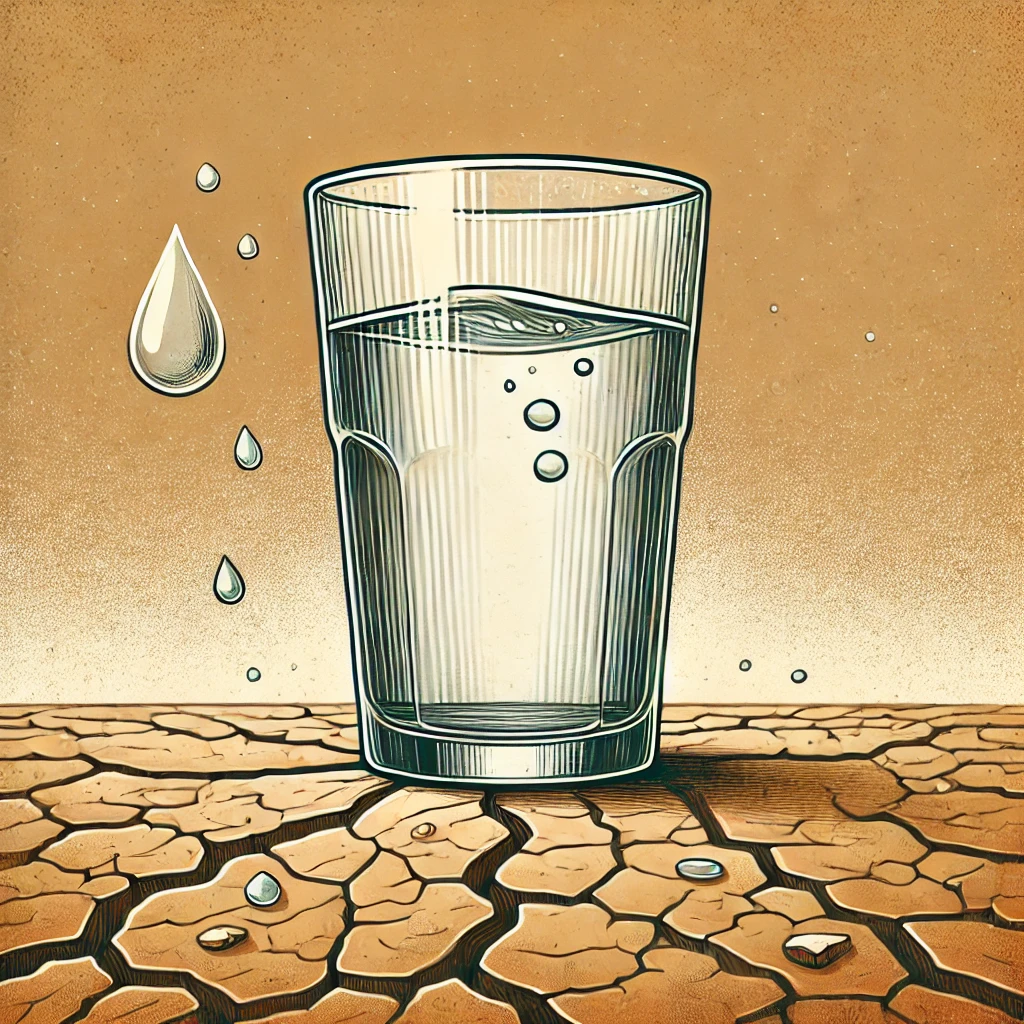
Water is fundamental to life. It’s a simple, clear liquid that plays a crucial role in maintaining our health and well-being. Yet, many people underestimate the importance of drinking enough water daily. Whether you’re aiming for optimal physical performance, mental clarity, or general health, water is the key. This article delves into the myriad reasons why staying hydrated is vital, exploring its benefits, the dangers of dehydration, and tips for ensuring you drink enough water every day.
Best Ways To Reduce Water Retention
Summer Weight Loss: How Heat and Metabolism Impact Weight Loss
7 Essential Ways to Stay Healthy During the Summer Season
1. Water: The Building Block of Life
Water makes up about 60% of the human body, highlighting its essential role in our physiological processes. Every cell, tissue, and organ requires water to function correctly. From regulating body temperature to flushing out toxins, water is involved in nearly every bodily function. Without sufficient water, our bodies cannot operate efficiently, leading to various health issues.
2. Regulating Body Temperature
One of the most critical functions of water is regulating body temperature. Through processes like sweating and respiration, water helps dissipate heat from the body, keeping our internal temperature stable. This is particularly important during physical activity or in hot climates, where the risk of overheating is higher. Staying hydrated ensures that your body can cool itself effectively, preventing heat-related illnesses like heatstroke.
3. Supporting Digestion and Nutrient Absorption
Water plays a crucial role in the digestive system. It helps break down the food you eat, making it easier for your body to absorb nutrients. Saliva, which begins the digestive process in the mouth, is primarily made up of water. Furthermore, water is essential for the proper functioning of enzymes that break down food in the stomach and intestines. Without adequate hydration, digestion can become sluggish, leading to constipation and other digestive problems.
4. Promoting Healthy Skin
Your skin is the largest organ of your body, and it needs water to stay healthy and vibrant. Proper hydration helps maintain skin elasticity, reducing the appearance of wrinkles and fine lines. Water also aids in flushing out toxins that can cause skin issues like acne and blemishes. Drinking enough water can give your skin a natural glow, making it look youthful and radiant.
5. Boosting Physical Performance
Athletes and fitness enthusiasts know that hydration is key to peak performance. Water is essential for muscle function, lubrication of joints, and the transportation of oxygen to cells. During exercise, your body loses water through sweat, and if not replenished, dehydration can set in. This can lead to muscle cramps, fatigue, and decreased coordination. Drinking enough water before, during, and after exercise can enhance your performance and help prevent injuries.
6. Aiding in Weight Management
If you’re trying to lose weight or maintain a healthy weight, water can be a powerful ally. Drinking water before meals can help you feel fuller, reducing the likelihood of overeating. Additionally, water has zero calories, making it a perfect replacement for sugary drinks that contribute to weight gain. Proper hydration also supports a healthy metabolism, which is crucial for burning calories efficiently.
7. Supporting Kidney Function
Your kidneys are responsible for filtering waste from your blood and excreting it in the form of urine. Water is essential for this process, as it helps dissolve waste substances and carry them out of the body. Insufficient water intake can lead to kidney stones and urinary tract infections. By staying hydrated, you support your kidneys’ ability to detoxify your body and maintain your overall health.
8. Enhancing Cognitive Function
The brain is highly sensitive to changes in hydration levels. Even mild dehydration can impair cognitive functions such as concentration, alertness, and short-term memory. Studies have shown that adequate water intake can improve mood, reduce feelings of anxiety and fatigue, and enhance overall cognitive performance. Whether you’re at work, school, or home, staying hydrated can help you stay sharp and focused.
9. Preventing Headaches
Dehydration is a common trigger for headaches and migraines. When the body loses too much water, the brain can temporarily shrink due to fluid loss, causing pain and discomfort. Drinking enough water throughout the day can help prevent headaches, especially in individuals who are prone to them. If you feel a headache coming on, reaching for a glass of water might be a simple yet effective remedy.
10. Maintaining Cardiovascular Health
Water is vital for maintaining a healthy heart and circulation system. Dehydration can cause blood to become thicker, making it harder for the heart to pump it effectively. This can lead to increased blood pressure and a higher risk of cardiovascular problems. By drinking enough water, you help keep your blood volume optimal, reducing the strain on your heart and supporting overall cardiovascular health.
11. Reducing the Risk of Chronic Diseases
Chronic dehydration has been linked to an increased risk of various health issues, including urinary tract infections, kidney stones, and even some forms of cancer. Long-term inadequate hydration can also contribute to the development of conditions like hypertension and type 2 diabetes. Ensuring you drink enough water daily is a simple yet powerful way to reduce your risk of these chronic diseases and promote long-term health.
12. Improving Joint Health
Joints rely on water for lubrication. The synovial fluid that cushions and protects joints is composed mainly of water. When you’re dehydrated, the synovial fluid decreases, leading to joint stiffness and pain. Proper hydration ensures that your joints remain flexible and pain-free, which is especially important for those with arthritis or those engaging in physical activities that stress the joints.
13. Supporting Immune Function
Water is essential for maintaining a healthy immune system. It helps carry oxygen to your cells, which is crucial for proper immune function. Additionally, staying hydrated helps flush out toxins and waste products, which can otherwise weaken your immune system. Drinking enough water can help your body fend off illnesses and recover more quickly when you do get sick.
14. Facilitating Detoxification
Detoxification is the process by which your body removes harmful substances. Water is a key component of this process. It helps the kidneys filter out toxins and supports the liver in metabolizing and eliminating waste. Adequate hydration also aids in the elimination of toxins through sweat and urine. Drinking enough water ensures that your body’s natural detoxification processes work efficiently, keeping you healthy and vibrant.
15. How Much Water Should You Drink?
The amount of water you need depends on various factors, including your age, weight, activity level, and climate. A common recommendation is to drink at least eight 8-ounce glasses of water a day, often referred to as the “8×8” rule. However, some people may need more, especially if they are active or live in hot climates. Listening to your body is key; drink water when you’re thirsty and increase your intake during exercise or hot weather.
Tips for Staying Hydrated
- Carry a Water Bottle: Having a reusable water bottle with you can serve as a constant reminder to drink water throughout the day.
- Set Reminders: Use your phone or a hydration app to set reminders to drink water at regular intervals.
- Eat Water-Rich Foods: Foods like cucumbers, watermelon, and oranges have high water content and can contribute to your hydration needs.
- Start Your Day with Water: Drinking a glass of water first thing in the morning can kick-start your hydration for the day.
- Flavor Your Water: If you find plain water boring, try adding a slice of lemon, cucumber, or a few fresh mint leaves to enhance the taste.
Conclusion
Water is a fundamental component of health and wellness. Its importance cannot be overstated, as it impacts nearly every aspect of bodily function. From maintaining body temperature and supporting digestion to enhancing cognitive function and preventing chronic diseases, the benefits of drinking enough water are vast. Incorporating more water into your daily routine is a simple yet effective way to promote overall health and well-being. So, the next time you reach for a drink, make it water – your body will thank you.




